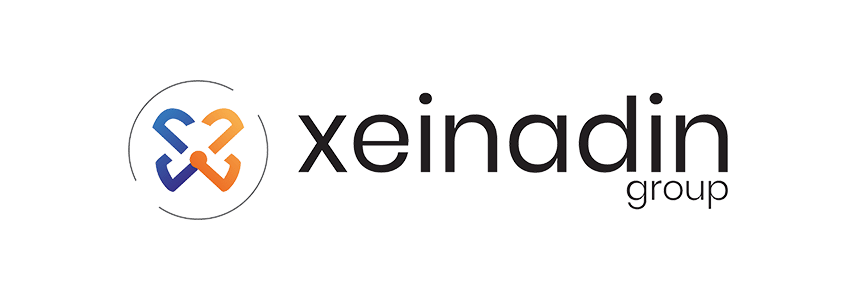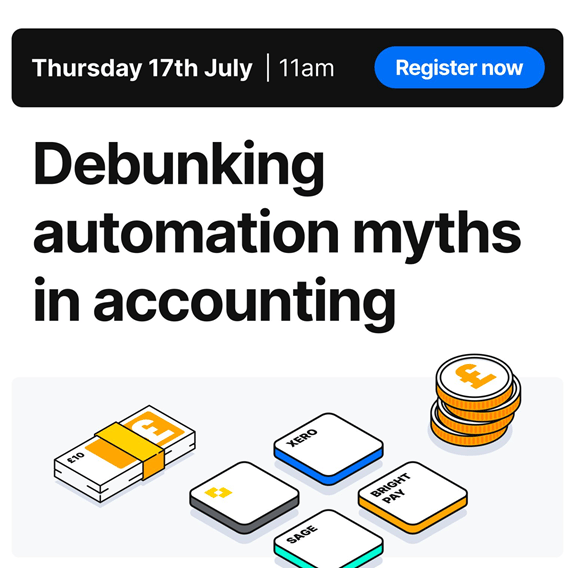- The Modern Accountant
- Posts
- The Modern Accountant Weekly Newsletter | 🏆 Xeinadin’s New Partners and the Rise of Advisory First
The Modern Accountant Weekly Newsletter | 🏆 Xeinadin’s New Partners and the Rise of Advisory First
Plus: Join tomorrow's webinar - "Debunking Automation Myths in Accounting"
Welcome to The Modern Accountant, a must-read for entrepreneurial accountants in growing firms. Each week, we share expert insights and practical tips to help you scale your practice, expand advisory services, and embrace new opportunities. Let’s redefine the future of accounting together.
Editors Pick 📣
Join Modulr on TOMORROW at 11am for a 40-minute live webinar as we tackle the biggest myths holding firms back from growth. Backed by fresh industry research, we’ll explore why many accounting firms misunderstand automation, and how modern payment systems can free up time, improve client outcomes, and unlock new revenue streams — like strategic advisory and fractional CFO services. |
Sector Spotlight 🌟
PARTNER PROMOTIONS
Xeinadin has made a strategic move by promoting ten professionals to partner roles across the UK and Ireland, driving its partner count over 200. This approach isn't just about numbers; it's a sign of their commitment to strengthening advisory services amid rising SME demands for strategic guidance in areas like tax and business resilience. Spearheaded by CEO Derry Crowley, these promotions underscore Xeinadin’s focus on nurturing internal talent. Notably, the professionals bring expertise in sectors ranging from audit and tax to specific industries like agriculture and cloud accounting.

TAX REFORM CHALLENGES
The recent ICAEW conference on VAT simplification revealed a strong consensus among delegates for reform, with 95% agreeing that change is necessary. The complexity of VAT legislation stands as a significant obstacle, particularly seen in the subjective definitions that challenge advisors in guiding their clients accurately. Singapore’s more straightforward GST system offers a compelling model, charging a flat 9% and incorporating income-sensitive measures for fairness.
However, public support in the UK remains a stumbling block, highlighting the need for better education on the benefits of VAT reform. Political influences tend to muddy the waters of debate, making it crucial to involve a range of perspectives for an informed discussion. The session underscored the importance of removing political biases and building a shared understanding for any simplification efforts to succeed. With a nod to international examples, there's a call for courage and collaboration among experts, the government, and the public to rethink the VAT system effectively.
AI IN TAXATION
AI is markedly advancing the realm of tax administration, with 72% of tax authorities employing it predominantly for detecting fraud and tax evasion. Yet, the allure of AI's efficiency must be counterbalanced by stringent ethical guidelines, an area where HMRC appears proactive. Their AI ethics framework promises a focus on safe and ethical usage, ensuring human oversight and adhering to data protection and explainability standards. This not only aids in streamlining operations but maintains trust in the system.
However, caution is stirring debates, highlighting AI's "black box" nature, which poses challenges to transparency and explainability. While AI sheds light on areas for human investigators, its autonomous judgements are scrutinised due to potential lack of clarity. The IFS recommends enforceable safeguards and transparency in AI application to ensure taxpayer protection. As HMRC embarks on integrating AI further, a balance of innovation and accountability remains crucial to avoid potential pitfalls, keeping lessons from past technological evolutions in mind.
SMALL BUSINESS FINANCE
Small businesses are found struggling under economic pressures without the aid of external accountants, which is deeply unsettling. Though over half of the United Kingdom’s small and medium-sized businesses believe a financial hiccup could permanently close their doors, a staggering 62% inexplicably opt out of professional accountancy services. This decision is not merely a missed opportunity, but it constitutes significant risk. With so many forsaking expert guidance, these businesses spend inordinate time on manual financial administration, sacrificing growth and leaving a tech gap in financial processes evident.
The reluctance to partner with accountants becomes even more perplexing as the report states that only 29% of small enterprises engage in forecasting potential recessions. Less than a quarter consistently monitor critical performance metrics. The pressing need for strategic partners is emphasised, as accountants now offer indispensable tech-driven insights and facilitate streamlined processes. The report underscores the importance of accountants as enablers of business success in an environment fraught with inflation, tax complexity, and economic volatility. For those wise enough to heed this advice, the potential for robust growth awaits.
AI ADOPTION CHALLENGES
UK businesses are diving headfirst into AI, but the expected productivity and financial benefits are often lost in translation. As per Qlik's survey, only 11% of AI initiatives deliver tangible gains, with most projects languishing in the pilot phase. Alarmingly, organisations lack clear KPIs to assess AI's performance, leaving perceptions and reality misaligned. This is a gentle reminder for businesses to prioritise measurable outcomes and solid data foundations to transform AI hype into meaningful impact.

